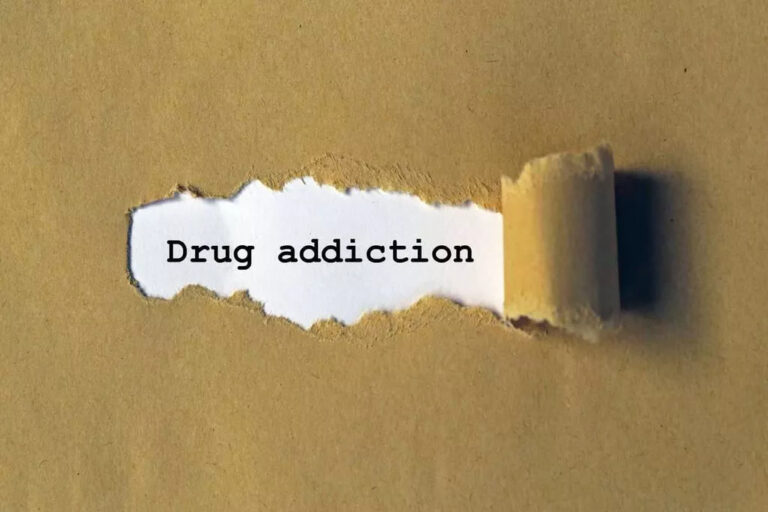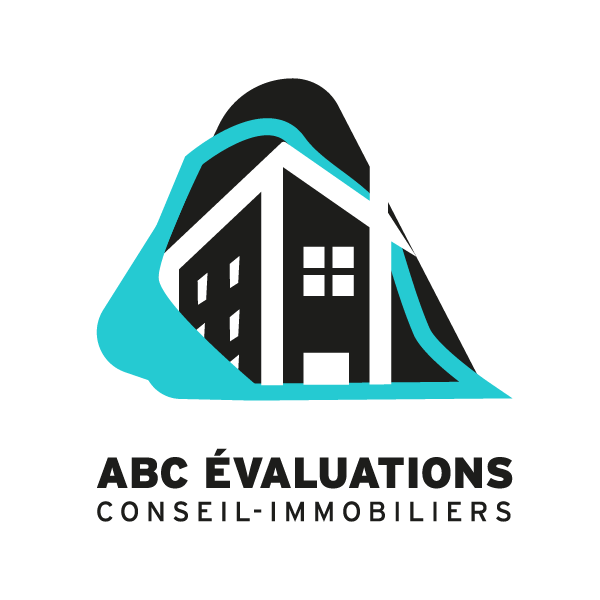Which Substance Abuse Issues May Require Medically Assisted Detox?
Contents
Buprenorphine, methadone, and naltrexone are used to treat OUD to short-acting opioids such as heroin, morphine, and codeine, as well as semi-synthetic opioids like oxycodone and hydrocodone. Acamprosate, disulfiram, and naltrexone are the most common medications used to treat alcohol use disorder. They do not provide a cure for the disorder but are most effective for people who participate in a treatment program. Stimulants, such as cocaine, Adderall, and crystal meth typically take the shortest amount of time to detox from, and symptoms depend on a number of factors including length of use, frequency of use, and route of administration. Between the first six and 24 hours, users will experience an initial crash.
- Carbamazepine primarily blocks voltage sensitive sodium channels, meaning that fewer of these channels are available to open, and therefore reduces excitability.
- Opioid-dependent patients must be free from opioids for at least ten days before starting treatment.
- Some may be in a hospital where you are mostly alone for the duration of your detox.
Under the care of experienced professionals, you can slowly break your substance use, work through withdrawal, and begin a rehabilitation program. Medication-assisted treatment and detox in California involves the supervised weaning of a drug addict, using a substitute drug. Medically assisted detox programs are designed to assure a safe and medically supervised transition through the acute phase of withdrawal from drugs and/or alcohol. When you or a loved one suffers from the physical and emotional challenges of chronic drug or alcohol addiction, the first step in achieving lasting sobriety is usually to choose a treatment program.
Benefits of Medically-Assisted Detox
Alcohol triggers the release of endorphins or chemicals in the brain that signal pleasure. Alcohol also depresses the central nervous system, which can impair speech, cognition, and muscle coordination. If you drink heavily over the course of months or years, your central nervous system gets used to the presence of alcohol and you can experience withdrawal symptoms if you suddenly stop consuming it. It’s important to remember that if medications are allowed to be kept at home, they must be locked in a safe place away from children. Methadone in its liquid form is colored and can be mistaken for a fruit juice. Children who mistakenly take medications may overdose or have an adverse reaction.
What are the dangers of detox?
Detox pills and diets can use a variety of substances to ‘purge’ the body of toxins. The laxatives, supplements, and even the ‘helpful’ bacteria used in some of these products can cause severe gastrointestinal issues. Some people on detox diets and cleanses can have problems with diarrhea, nausea, and vomiting.
We continue to monitor those goals, to make sure that our clients are progressing and buying into their recovery plan. Oulis P, Konstantakopoulos G. Pregabalin in the treatment of alcohol and benzodiazepines dependence. De Sousa AA, De Sousa J, Kapoor H. An open randomized trial comparing disulfiram and topiramate in the treatment of alcohol dependence. Muzyk AJ, Fowler JA, Norwood why do old people shake causes of sudden shaking in the elderly DK, Chilipko A. Role of α2-agonists in the treatment of acute alcohol withdrawal. Salehi M, Kheirabadi GR, Maracy MR, Ranjkesh M. Importance of gabapentin dose in treatment of opioid withdrawal. This is why it is usually recommended that recovering individuals gradually taper themselves off of an abused substance, so as to give their bodies time to adjust to their absence.
As an added perk, the food is some of the best you’ll ever have thanks to the chefs. Topamax and Neurontin are useful in the initial stages of stimulant withdrawal to reduce cravings and prevent Adderall crash. We work to break down barriers to your recovery, whether those are personal, financial, or physical.
Three Phases of Ohio Drug Detox Centers
Cigarettes can act as a cue to consume other drugs by smoking, and cessation can help with drug treatment outcomes, such as coping with cravings and preventing relapse. The main nicotine detoxification treatments are considered below, but in addition, clonidine can be considered as a second-line treatment. Tiagabine, baclofen, gabapentin, varencline, mecamylamine (a non-selective NAch receptor antagonist) and topiramate have all been shown in studies to have positive effects on cessation. Reducing glutamate overactivity in withdrawal is important for reducing toxicity. Antiglutamatergic drugs are as effective as benzodiazepines for detoxification.
People often decide they want to “give up” and they manipulate their families to let them come back home, sneak substances into the facility, or just get up and leave one day in order to use and then come back. If you are able to get through this tough period of extreme grandiose and vulnerable narcissism cravings with the help of medication, then your chances of staying sober for the long-term are much better. When medication is administered during detox, your body is relieved of uncomfortable withdrawal symptoms and you are able to better focus on therapy.
Pharmacological strategies for detoxification
Their peer lead AA/NA were my first experience to any type of meeting which was great exposure prior to attending outside meetings on my own. Find a treatment center near you and get started on the path toward recovery. Denis C, Fatséas M, Lavie E, Auriacombe M. Pharmacological interventions for benzodiazepine mono-dependence management in outpatient settings. Schmaal L, Goudriaan AE, Joos L, Krüse AM, Dom G, van den Brink W, Veltman DJ. Modafinil modulates resting-state functional network connectivity and cognitive control in alcohol-dependent patients.
What human organs can repair itself?
The liver is the only organ in the human body that can regenerate. Although some patients who have a diseased portion of their liver removed are unable to regrow the tissue and end up needing a transplant. Researchers from Michigan State University believe blood clotting factor fibrinogen may be responsible.
A major problem in cannabis withdrawal is difficulty sleeping, and a study by Vandrey et al. has shown this may be alleviated with zolpidem. Research into rimonabant, a cannabinoid receptor antagonist, was terminated due to intolerable side effects . Some promise for cannabis detoxification has been shown by oral tetrahydrocannabinol and lithium carbonate.
Clonidine and propranolol are also used as detox drugs for opiates because they suppress the fight-or-flight response and reduce high blood pressure, agitation, anxiety, muscle aches, cramping, and sweating. Other detox drugs may be prescribed to help with specific problems such as vomiting, diarrhea, or insomnia. Withdrawal starts in 8-12 hours for most prescription opiates, peaks in hours, and lasts 5-10 days usually. Methadone withdrawal begins within hours, peaks in the first few days, and lasts 2-4 weeks, per Cambridge Health Alliance. Benzodiazepines, a Schedule IV drug, act as central nervous system depressants, helping to calm anxiety and panic. Some of the most common drugs in this category include Xanax, Valium, Klonopin and Ativan.
Treatment is started 1 week before the cessation attempt, starting at 150 mg day−1 for 3–5 days, increasing to 150 mg twice daily, which continues for 7–12 weeks. Using concomitant NRT with bupropion can double the cessation rate and can be considered for users struggling to quit with NRT alone . In detoxification for cannabis, anticonvulsants such as valproate semisodium and antidepressants such as bupropion, fluoxetine, mirtazepine and nefazadone have shown little benefit [97–100]. Cravings are reduced, but irritability, anxiety and tiredness are increased.
Medications for Opioid Use Disorder (MOUD)
Due to these problems, it is rarely recommended for use in outpatient settings. Nicole hopes to spread awareness of and combat the stigmatization surrounding addiction and substance abuse treatment through her writing and work in the field. Individuals may also be evaluated for any co-occurring disorders which may further complicate substance withdrawal.

Medical detoxification is the process in which chemical dependency is treated. All of this is done while in an environment that is supervised by a staff of doctors, nurses, and other medical professionals. Many drugs have significant withdrawal symptoms once you stop using them, causing considerable discomfort or pain. Without proper medical attention, medications, and monitoring, these withdrawal symptoms can become dangerous to your health and even become life-threatening. You can find addiction rehab and detox centers near you just by using the FAR drug and alcohol rehab directory. Or, you can call our 24/7 hotline, and one of our representatives can find a drug detox program or other addiction treatment options that work best for you.
Drugs that Normally Need Medically Assisted Detox
For many, detoxing can be scary, unpleasant, and sometimes dangerous due to the unpredictability of withdrawal symptoms ranging from mild to severe. In addition, the duration of your detox program also depends on the frequency of your substance use. You may have to undergo medical detoxification in Ohio for an extended period of time due to the amount of the substance that you have taken. Mixing various inpatient rehab for alcoholism substances together will often result in a longer detox process. At Ohio Addiction Recovery Center, our detox program is in a relaxed residential environment that includes recreations, TV rooms, a cafeteria with snacks, among other amenities. Not only that, but you or a loved one will be among peers also undergoing detox or residential rehabilitation for specifically drug or alcohol addiction.

Medications can be used to help ease symptoms as you wean off substance use. Zorick, Todd; Nestor, Liam; & et al. “Withdrawal symptoms in abstinent methamp[…]e-dependent subjects.” Addiction, October 2012. Helped me so much I am a 64 year old woman and this place got me sober with dignity and kindness. The entire staff of Coastal is great, the therapists, the nurses, the techs, everyone.
The average medically assisted detox California lasts between three and seven days, depending on the individual circumstances. Medical detox is only the first step of an addiction rehabilitation program. Experts believe the use of substitute drugs enables an addict to be in a better prepared to tackle the rest of the recovery process.
Withdrawal from alcohol may not require pharmacological intervention, if the severity of dependence and withdrawal symptoms do not require it. However, thiamine supplements may be necessary to avoid the Wernicke–Korsakoff syndrome . Those with alcohol dependency tend to have a reduced level of thiamine in their diet and ethanol can disrupt thiamine storage and use . Another treatment with a potential role in alcohol detoxification is the psychotropic analgesic nitrous oxide , which has been identified by a Cochrane review for mild to moderate alcohol withdrawal . Naltrexone is a μ opioid receptor antagonist which is non-addictive and has no euphoric effects.
Hays JT, Ebbert JO. Bupropion sustained release for treatment of tobacco dependence. Hurt RD, Sachs DPL, Glover ED, Offord KP, Johnston JA, Dale LC, Khayrallah MA, Schroeder DR, Glover PN, Sullivan CR, Croghan IT, Sullivan PM. A comparison of sustained release bupropion and placebo for smoking cessation. Frishman WH. Smoking cessation pharmacotherapy – nicotine and non-nicotine preparations. Schnoll RA, Lerman C. Current and emerging pharmacotherapies for treating tobacco dependence. Scott RTA. The prevention of convulsions during benzodiazepine withdrawals. Haney M, Hart CL, Vosburg SK, Comer SD, Reed SC, Cooper ZD, Foltin RW. Effects of baclofen and mirtazapine on a laboratory model of marijuana withdrawal and relapse.
Are visitors allowed during detox?
In most cases, visitors are not allowed to visit during detox due to the nature of the withdrawal process.
Medication assisted detoxification, or detox, from opiates, alcohol and/or other drugs is managed closely by the onsite medical team to ensure client safety and comfort. The Camp Recovery Center provides comprehensive detoxification, residential, outpatient and aftercare treatment programs for adults and adolescents struggling with drug or alcohol addiction. Side effects can include muscle aches, cold sweats, anxiety, depression, cravings, and flu-like symptoms.
